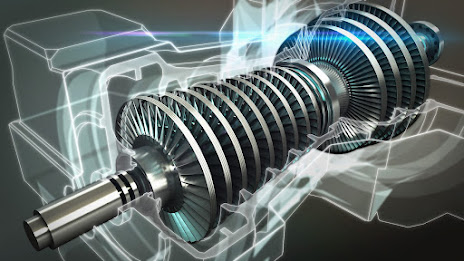The Gas Turbine MRO Market In The Power Sector is Estimated To Witness High Growth Owing To Shifting Focus Towards Preventive Maintenance
The Gas Turbine MRO Market in the Power Sector is estimated to be valued at US$ 13.07 Bn in 2023 and is expected to exhibit a CAGR of 6.7% over the forecast period 2023 to 2030, as highlighted in a new report published by Coherent Market Insights.
Market Overview:
The gas turbine MRO market in the power sector deals with maintenance, repair,
and overhaul services for gas turbines used in power generation. Gas turbines
are critical equipment used in power plants and require routine maintenance and
component replacement to function efficiently and reduce failure risks. Their
MRO helps extend asset life by ensuring reliable operation as per performance
standards.
Market key trends:
One of the major trends driving the gas turbine MRO market is the shifting
focus towards preventive maintenance. Gas turbines are capital-intensive
equipment and any failure can result in high repair costs and loss of
generation. Therefore, most utilities have started following strict preventive
maintenance schedules that involve periodic inspection, testing, cleaning, and
replacement of components as per OEM guidelines. This helps detect issues at an
early stage and prevent unplanned breakdowns. For instance, General Electric
conducts condition monitoring of turbine assets to optimize maintenance cycles.
Such preventive strategies help improve asset availability and life. This
rising preventive maintenance adoption supports the growing demand for gas
turbine MRO services.
Porter's Analysis:
Threat of new entrants: The gas turbine MRO market in the power sector requires
significant resources and capital to enter. Established players have economies
of scale and access to technical expertise that poses barriers for new
companies.
Bargaining power of buyers: Power sector utilities that procure MRO services
have significant bargaining power given the indispensable nature of gas
turbines. However, major OEMs and independent service providers balance this
out by providing customized solutions and services.
Bargaining power of suppliers: Major component OEMs like GE and Siemens wield
influence as suppliers of critical spare parts and expertise. However,
availability of alternative part suppliers and in-house repair capabilities of
utilities ensures pricing is competitive.
Threat of new substitutes: Gas turbines dominate thermal power generation.
Renewables are substitute technologies but their adoption depends on location-specific
factors and policy support limiting threat in short-term.
Competitive rivalry: Intense as major OEMs and independent service providers
compete on technology, services portfolio, geographic reach and lifecycle cost
reductions to utilities.
SWOT Analysis:
Strengths: Proprietary technologies, expertise in critical repairs and
upgrades, global service networks.
Weaknesses: Higher costs for new entrants, dependency on aging fleet for
revenues in future, vulnerability to policies favoring renewable energy.
Opportunities: Growth in power demand, fleet expansions in Asia Pacific and
Middle East, opportunities in performance upgrades and digital solutions.
Threats: Low carbon policies promoting renewables, economic slowdowns impacting
new plant additions, increasing localized MRO capabilities.
Key Takeaways:
The Global
Gas Turbine MRO Market Size in the power sector is expected to witness
high growth, exhibiting CAGR of 6.7%
over the forecast period, due to increasing investments in operational efficiency
and asset performance optimization programs by utilities.
Regional analysis: Asia Pacific dominates currently owing to large installed
base and growing investments in thermal power capacity additions particularly
in China and India. Europe and North America are also significant regions
however future growth prospects are higher in the emerging markets of Middle
East, Southeast Asia and Africa.
Key players: Key players operating in the gas turbine Mro market in the power
sector includes General Electric Company, Mitsubishi Heavy Industries Ltd, RWG
(Repair & Overhauls) Limited, Metalock Engineering Group, Goltens Worldwide
Management Corporation, Siemens Energy AG, Sulzer Ltd, Doosan Heavy Industries
and Construction, Solar Turbines Incorporated, and Ethos Energy LLC. GE
dominates with wide geographic reach and technology leadership. Independent
service providers are growing in capabilities to address specific customer
needs and reduce OEM dependency over lifecycle.




Comments
Post a Comment